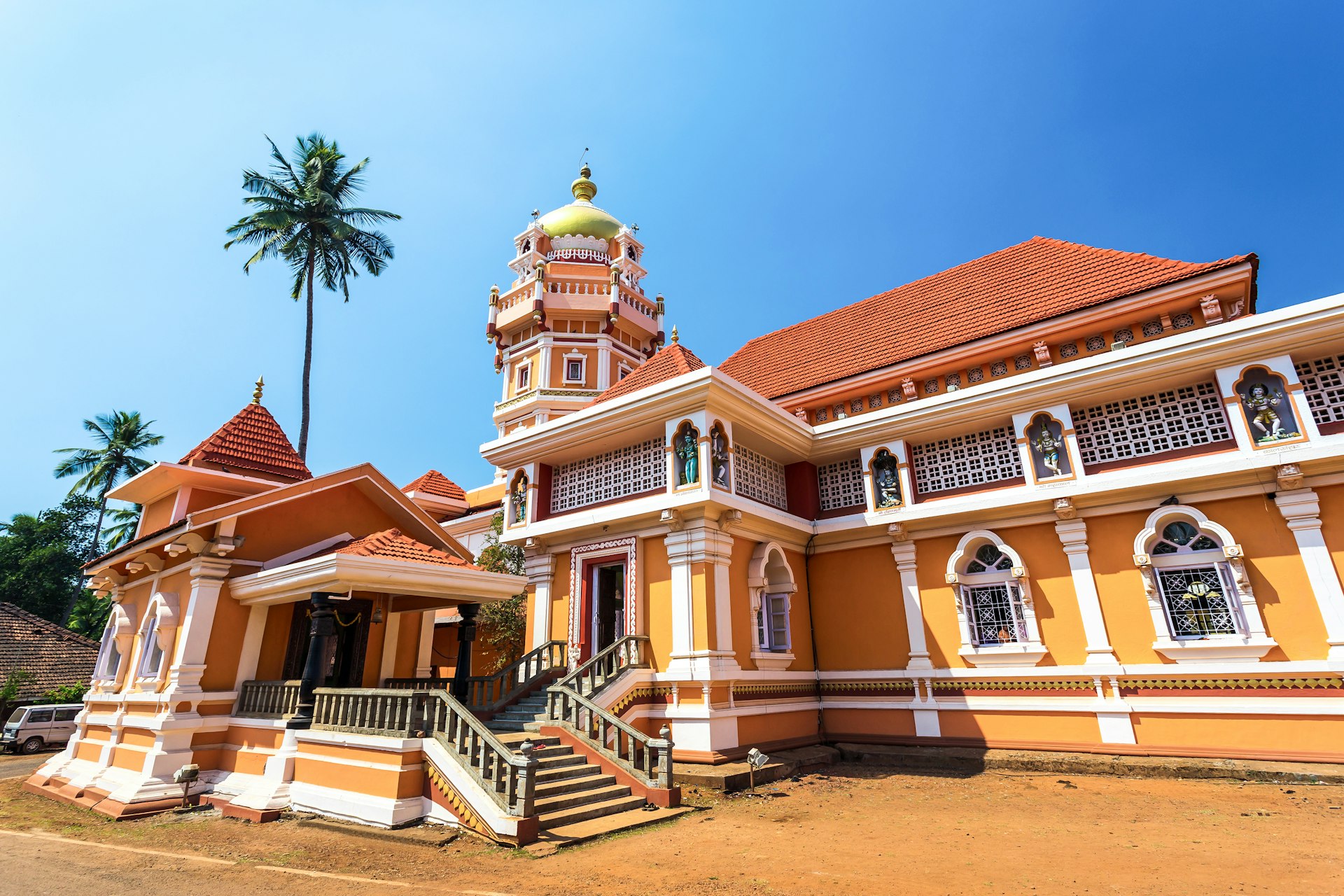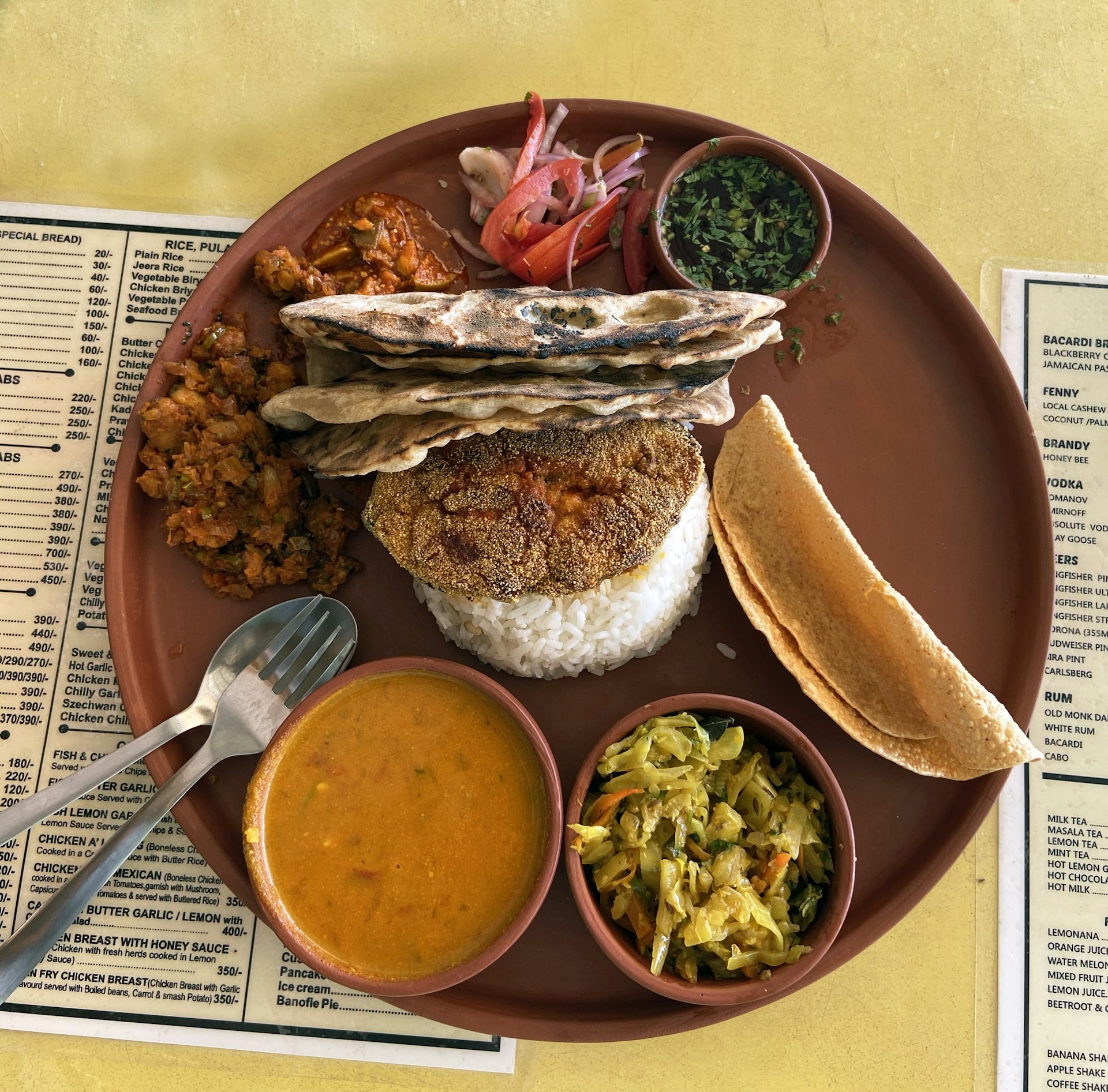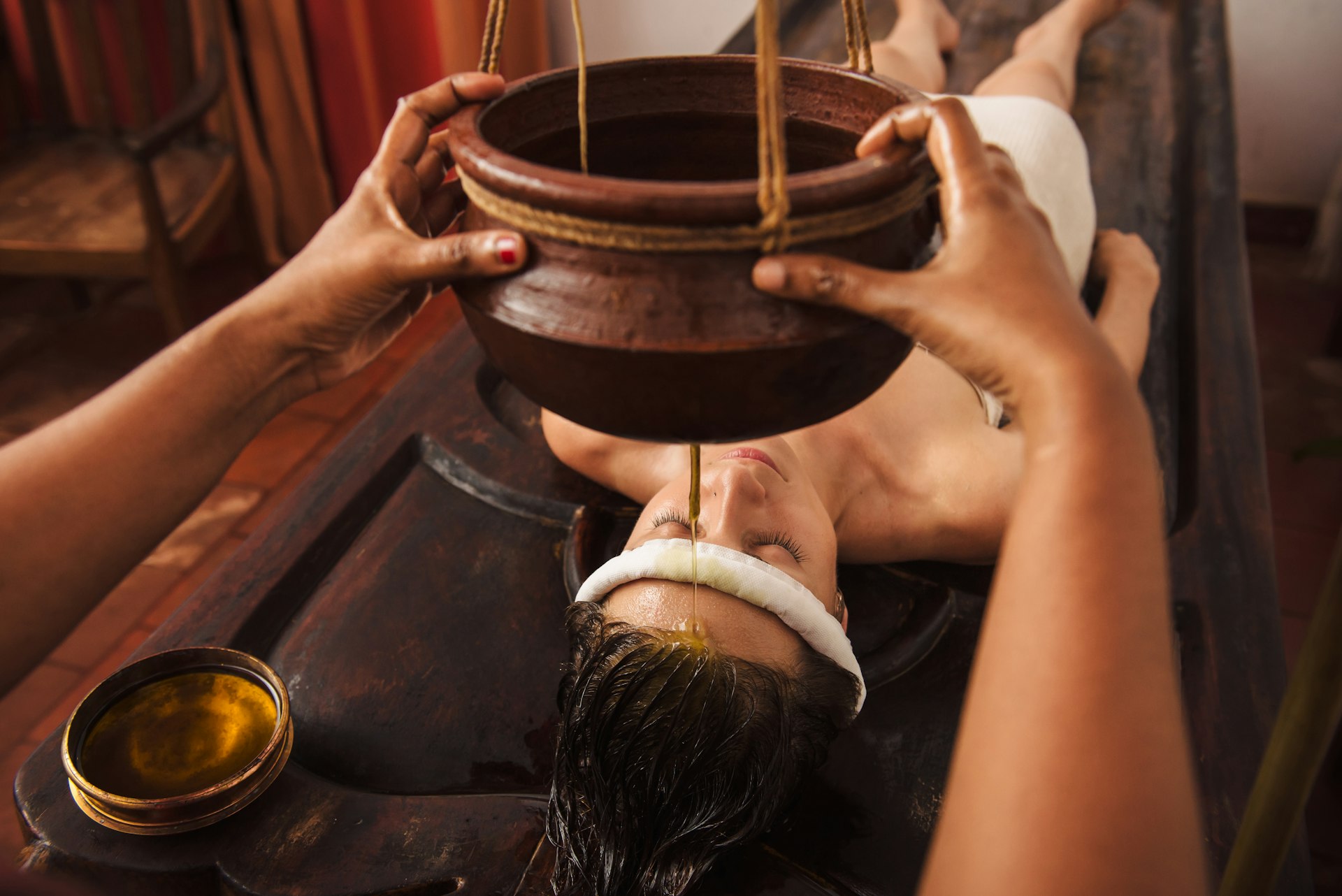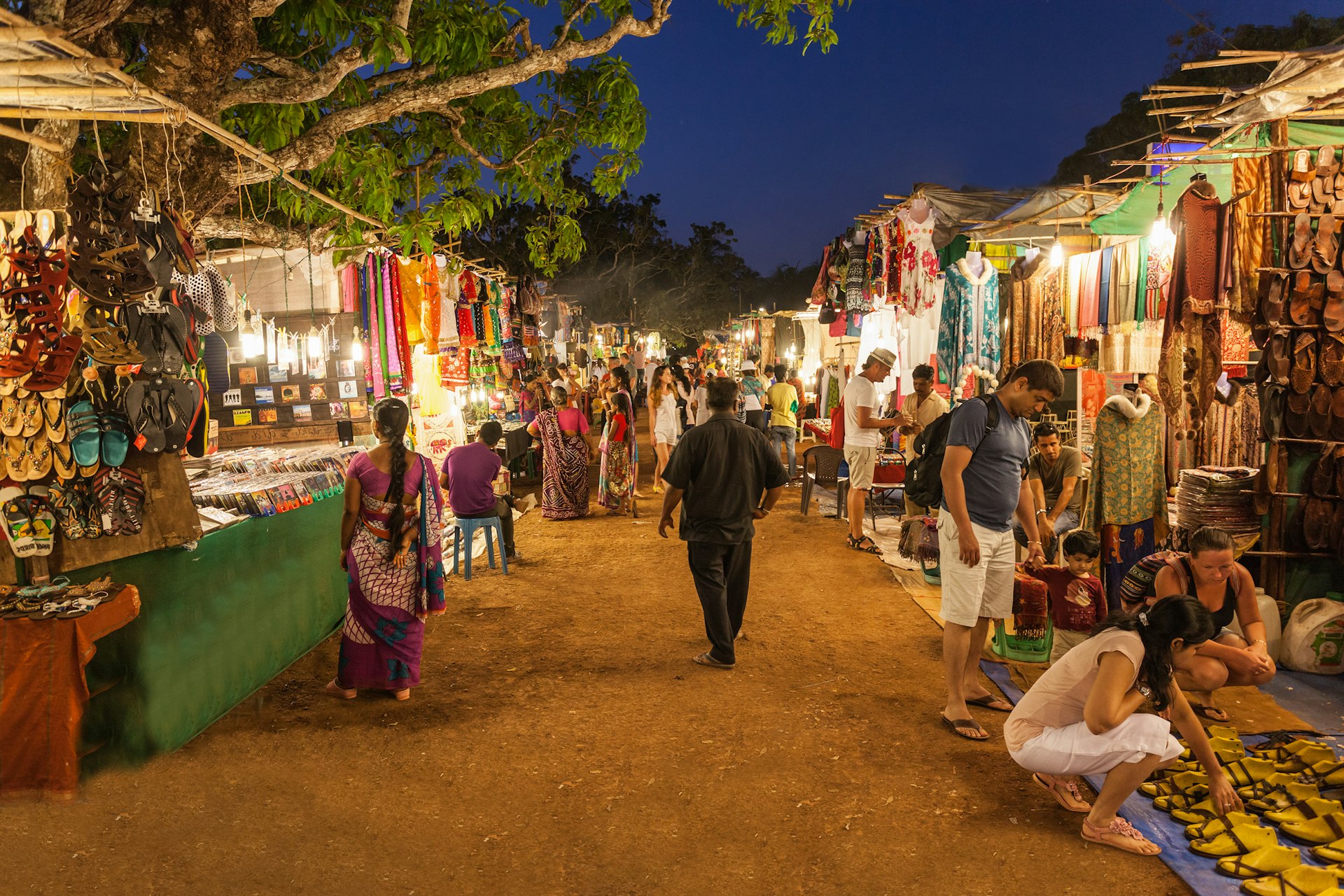Planning a subcontinental winter holiday? Read on as two writers make the case for their preferred South Indian state.
As you head toward India’s southern tip, temperatures rise, beaches unfold, food gets ever spicier – and a decision about just where you should settle in and slow down beckons.
You could do worse than an extended spell in two of South India’s most beguiling states, Goa and Kerala. But what if you had to pick one over the other? Since we couldn’t possibly decide, we asked two writers to make the case for their preferred destination. A subcontinental winter getaway awaits.
Go to Goa
A proud Goenkar (Goan) who has spent most of her life in the state, Joanna Lobo is on a mission to spread the good word about her home, and showcase its beauty beyond the Instagram Reels and stereotypes.
The year was 2020. Indians, besieged by the rampaging coronavirus and stuck at home, sought an escape – a better life – in a place that was beautiful, quiet, affordable and convenient. Where did they choose to go? Goa, of course. Welcome to India’s favorite post-pandemic destination.
People go to Kerala on vacation. They come to Goa to find a home.
This tiny state is a one-stop destination with everything to offer – which made it a popular spot for travelers well before 2020. Couples would flock here for honeymoons; families for quality time; youngsters for a quick holiday away from the prying eyes of adults; unmarried folk for bachelor and bachelorette parties. All over India, “Goa chalte hain” (“let’s go to Goa”) is a commonly repeated phrase for anyone planning a getaway.

Good things always come in small packages. So despite being a fraction of the size of Kerala, Goa offers so much more. It is a place that embraces tradition and yet keeps space for modernity. The colonial presence of the Portuguese for 451 years has given it a distinctly European feel in terms of food, architecture, clothing and music.
Goa’s highlight reel is so long, it could be a movie. (Consider this the trailer.) There’s history, architecture and maybe even a miracle to be found at the heritage site of Basilica of Bom Jesus in Old Goa, which hosts the remains of St Francis Xavier. Goa’s temples are architecturally stunning, as are its forts, including Fort Aguada. At Bhagwan Mahavir Wildlife Sanctuary and Dr Salim Ali Bird Sanctuary, you’ll get a glimpse of the state’s rich tropical biodiversity. The museums are fun, too, including the boat-shaped Houses of Goa. Gasp in awe at the milky-white Dudhsagar Falls, the second-highest in India. And spend time at the miles of internationally famous beaches, which offer soft sands, clean waters and waves gentle enough for beginner surfers.
North Goa has flea markets, party spots and casinos. South Goa is more traditional, with quieter beaches and largely untouched forest cover.

Goa’s cuisine makes the state a true powerhouse. The flavors here stand apart from other Indian food: Goa took the best of what the Portuguese had to offer, and made it its own. The curries are complex and flavorful, bread is a serious business, and desserts are rich but not overly sweet. Fish-curry-rice is the staple meal, best eaten at small thali joints. In recent years, the food scene has boomed, complemented by an exciting cocktail culture. While Keralans grow cashews just for the nuts, Goans distill cashew juice into artisanal spirits like feni and urrak.
Goa’s highlights inspire all manner of content creators. Why else would influencers flock here to make #OffbeatGoa content? You can write stories (or film Reels) on Goa’s pilots (motorcycle taxis). Or the translucent oyster-shell windows in old homes. Or festivals where people get buried underground. Or the village that gets swamped underwater each year and resurfaces during summer.
The Danish have hygge, but Goa has susegaad. It is a state of quiet and contentment that’s only found in Goa.
Why bother with any other place?

Keep to Kerala
Luke Waterson spent a month traveling through the state of Kerala, sampling its serenity from Ayurveda retreats on the coast to tea-tasting on Munnar’s hilly plantations.
The backstory to this bedrock of backwater boating adventures, axis of Ayurvedic healing and titan of the South Indian tea-growing scene is an enthralling one. For compared to Goa’s fetching but somehow familiar beach resorts, Kerala captivates you with almighty doses of what you will never have seen before.
Kerala is a vividly ritualistic place – and that’s what I love about it most. The entrancing dance form of kathakali, during which performers enact Hindu folk stories in breathtakingly lavish costumes, comes from here. This is also the place that gave us Ayurveda, one of the world’s oldest and best-known holistic healing methodologies. The south of Kerala is replete with Ayurveda retreats where you can cleanse yourself through specialized treatments, a plant-based diet and the simple act of kicking back for a while in peaceful surroundings. The Ayurvedic influence has also helped make the state probably the most vegetarian-friendly destination on the globe. And Kerala is the scene of some festivals of almost theatrical lavishness, like Onam, with its parades of decorated elephants and floats, kathakali performances and carpets of many-colored flower petals arranged in kaleidoscopic designs.
Go to Goa to party; come to Kerala to open your eyes and see all the culture.

Topographically, Kerala virtually owns the word “backwater.” The maze of channels, lakes and inlets constituting the Kerala backwaters fans out from Alappuzha to cover around 1000km (621 miles). This extraordinary wetland ecosystem is made up of fresh and brackish water, ensuring incredible species diversity. A journey by houseboat through these waterways – watching out for the likes of turtles, rice paddies and idyllic backdoor village life – is a highlight of any trip to India.
Equally magnificent (in a much more mountainous way) is the Munnar region, where hills of shimmering green are latticed by some of South India’s most important tea plantations. High above Munnar, the national parks of Eravikulam, Anamudi Shola and Pampadum Shola (for the record, Goa has but one national park in total) protect expanses of high-altitude, grassland-surrounded tropical shola forests that harbor many endangered species, including Nilgiri tahr (wild goats), Nilgiri martens, leopards and tigers.
Other attractions – lesser-known internationally – showcase more of Kerala’s one-of-a-kind character: the petroglyph-inscribed cavern system of Edakkal Caves, or mountain-flanked Thirunelly Temple, one of the subcontinent’s oldest temples. And if you do demand divine sandy beaches as a prerequisite for a visit, the state has a surfeit of them: see for yourself at Varkala, near Thiruvananthapuram (known for its nearby Ayurvedic wellness centers), or serene Marari Beach. Perhaps most important for the prospective traveler, Kerala is a lush, verdant enclave where you can slow down, seek tranquility and recharge in a way not possible elsewhere in India.
Kerala has a length and breadth both of terrain and of character that party place Goa can never match. So I’ll share one memory that sums up why the state should have the edge for your next big trip.

Just back from the coast north of Alappuzha, I recall arriving toward the last glowing light of day at a homestay, eyeing a rickety old boat moored at the waterside and spontaneously deciding to row off for a while through the shady lagoon, which was already plunged into evening shadow. Suddenly, around a bend, a glorious stretch of palm-hemmed, sandy beach revealed itself. Unlike Goa’s manicured strands, it was by no means pristine – but it was populated by a small group of local folks practicing yoga, all bathed in the fiery red of the setting sun.
This epitomized the perfect Keralan adventure.
